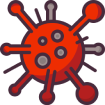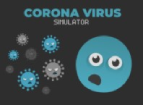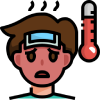About COVID-19
Coronaviruses (CoV) are a large family of viruses that cause illness ranging from the common cold to more severe diseases such as Middle East Respiratory Syndrome (MERS-CoV) and Severe Acute Respiratory Syndrome (SARS-CoV). A novel coronavirus (nCoV) is a new strain that has not been previously identified in humans.
Coronaviruses are zoonotic, meaning they are transmitted between animals and people. Detailed investigations found that SARS-CoV was transmitted from civet cats to humans and MERS-CoV from dromedary camels to humans. Several known coronaviruses are circulating in animals that have not yet infected humans.
Common signs of infection include respiratory symptoms, fever, cough, shortness of breath and breathing difficulties. In more severe cases, infection can cause pneumonia, severe acute respiratory syndrome, kidney failure and even death
Standard recommendations to prevent infection spread include regular hand washing, covering mouth and nose when coughing and sneezing, thoroughly cooking meat and eggs. Avoid close contact with anyone showing symptoms of respiratory illness such as coughing and sneezing.
Facilities and services
COVID-19 TRACKING

MEET YOUR DOCTOR

CORONA VIRUS AR MODEL

CORONA HELPLINE (INDIA)

Info Point :)
VIDEO AWARENESS

HEALTH NEWS

COVID-19 impacts on Environment

CORONA SIMULATOR

Emergency help

Protect yourself and others from COVID-19
1. Regularly and thoroughly clean your hands with an alcohol-based hand rub or wash them with soap and water.
2. Maintain at least 1 metre (3 feet) distance between yourself and others.
3. Avoid going to crowded places.
4. Avoid touching eyes, nose and mouth.
5. Governments should encourage the general public to wear a fabric mask if there is widespread community transmission, and especially where physical distancing cannot be maintained.
 Nutpam Corona Awareness Page
Nutpam Corona Awareness Page


